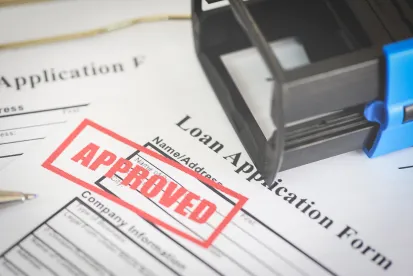The fair lending laws have been on the books for decades but are being given more scrutiny in recent months, consistent with societal sensitivity to matters of racial justice, national origin/immigration, sexual orientation, and gender identity, among others. There also has been enhanced scrutiny in the world of corporate governance, with corporations implementing Diversity, Equity, and Inclusion departments and employing Environmental, Social, and Governance programs. In fact, to be listed on the Nasdaq exchange, US issuers must disclose that they have at least one director who is a racial minority and one female or one member of the LGBTQ community, or explain why they do not. (NASDAQ Rule 5605(f)).
The degree of enforcement of the fair lending laws by the regulators can vary depending on which administration is in office, and the Biden administration is no exception. The Biden administration is just a year old, so there has not been time for much new litigation, but policymakers appointed by President Biden have issued pronouncements signaling what the banking industry can expect, specifically including changes from the Trump administration.
This two-part series of articles will explore some of the Biden administration’s more high-profile initiatives. This first article will examine the renewed focus on combatting the practice of redlining and the expanded oversight role of the Consumer Financial Protection Bureau (CFPB). The second article will look at efforts to recodify the discriminatory-effects standards of the Fair Housing Act (FHA) and to enforce the Office of the Comptroller of the Currency’s (OCC) December 14, 2021 final rule regarding Community Reinvestment Act (CRA) data-collection requirements.
Department of Justice Announces ‘Combatting Redlining Initiative’
On October 22, 2021, US Attorney General Merrick Garland announced that the Department of Justice (DOJ) will be joining forces with the CFPB, the OCC, local US attorneys, and state attorneys general to pursue fair-lending violations by banks, with a particular focus on redlining (which is the failure to lend in minority communities, based on race and national origin). He plans to utilize the US attorneys’ offices, which, as boots on the ground, would be well-positioned to conduct investigations locally. More specifically, Mr. Garland stated during a press conference:
“Lending discrimination runs counter to fundamental promises of our economic system. When people are denied credit simply because of their race or national origin, their ability to share in our nation’s prosperity is all but eliminated. Today, we are committing ourselves to addressing modern-day redlining by making far more robust use of our fair lending authorities. We will spare no resource to ensure that federal fair lending laws are vigorously enforced and that financial institutions provide equal opportunity for every American to obtain credit.”
Underscoring the importance of this issue to the Biden administration, the press release announcing the program added, “The new Initiative represents the department’s most aggressive and coordinated enforcement effort to address redlining, which is prohibited by the Fair Housing Act and the Equal Credit Opportunity Act.” To ensure that the DOJ’s message was absolutely clear, Assistant Attorney General for the Civil Rights Division Kristen Clarke noted that the initiative “should send a strong message to banks and lenders that we will hold them accountable as we work to combat discriminatory race and national origin-based lending practices.”
In conjunction with this announcement, Mr. Garland added that the DOJ, on October 22, 2021, had sued Trustmark Bank for redlining in the US District Court for the Western District of Tennessee under the Equal Credit Opportunity Act (ECOA) and the FHA. The lawsuit alleged that Trustmark had engaged in lending discrimination redlining in predominantly Black and Hispanic neighborhoods in Memphis, Tennessee, from 2014 to 2018.
The Trustmark suit is similar to that filed by the DOJ against Cadence Bank in the US District Court for the Northern District of Georgia on August 30, 2021, also alleging violations of the FHA and ECOA. In this prior suit, the government claimed that Cadence had engaged in redlining from 2013 through 2017 by failing to loan in neighborhoods inhabited predominantly by minorities.
Historically, redlining actions have been brought against banks. However, the CFPB has indicated that it will also pursue redlining litigation against non-bank mortgage lenders, such as that brought by the CFPB (under the Trump administration) against mortgage lender Townstone Financial, Inc., on July 15, 2020, in the US District Court for the Northern District of Illinois — the first suit ever against a mortgage lender for redlining.
While the majority of this type of fair lending litigation is brought by federal authorities, the ECOA and the FHA do provide a private right of action against creditors that discriminate against applicants. (See Cleveland v. Hunton, 2016 U.S. Dist. LEXIS 175262, at *6 (E.D. Cal. Dec. 16, 2016) and Brown-Younger v. Mosen, 2011 U.S. Dist. LEXIS 126852, at *4 (D. Nev. Oct. 28, 2011) (quoting 42 U.S.C. § 3613(a)(1)(A)).)
Class actions also may be brought under these fair lending laws (see Fair Hous. Ctr. of Cent. Ind. v. Rainbow Realty Grp., 2020 U.S. Dist. LEXIS 53084, at *18-19 (S.D. Ind. Mar. 27, 2020)). Such collective litigation, however, faces significant burdens, including obtaining class certification (see Wal-Mart Stores, Inc. v. Dukes, 564 U.S. 338, 356 (2011); In re Countrywide Fin. Corp. Mort. Lending Practices Litig., 708 F.3d 704, 709 (6th Cir. 2013); and Id. at 710; accord. Adkins v. Morgan Stanley, 307 F.R.D. 119, 146 (S.D.N.Y. 2015)), as well as the inclusion of arbitration agreements in many lending documents that preclude the filing of class-action litigation or the pursuit of class-action arbitration (see Pitchford v. AmSouth Bank, 285 F. Supp. 2d 1286, 1292 (M.D. Ala. 2003)).
The Oversight Role of the CFPB
The Dodd-Frank Wall Street Reform and Consumer Protection Act (DFA) directed the CFPB to implement regulations governing the collection of small-business lending data. More specifically, Section 1071 of the DFA amended the ECOA to require financial institutions to compile, maintain, and submit to the CFPB certain data on applications for credit for women-owned, minority-owned, and small businesses. According to the CFPB, Congress enacted Section 1071 for the purpose of:
-
Facilitating enforcement of fair lending laws; and
-
Enabling communities, governmental entities, and creditors to identify business and community development needs and opportunities for women-owned, minority-owned, and small businesses.
On September 1, 2021, the CFPB issued a proposed rule amending Regulation B to implement changes to ECOA made by Section 1071 of the DFA, including the requirement that covered financial institutions collect and report to the CFPB data on applications for credit for small businesses, including those that are owned by women or minorities. The information collected will include information about the type of credit small businesses seek and obtain, demographic information about small-business owners, how applications are received, and the outcomes of applications.
The CFPB proposes to use the definitions of “small businesses” set forth in the Small Business Act and Small Business Administration (SBA) regulations. However, the CFPB’s proposed definition also will consider whether the business had $5 million or less in gross annual revenue for the preceding fiscal year. The CFPB is seeking SBA approval to enforce the alternate small-business size standard pursuant to the Small Business Act.
With respect to banks that have greater than $10 billion in assets, the CFPB is also authorized to enforce the Unfair, Deceptive, or Abusive Acts or Practices (UDAAP) statute, which is part of the DFA. Given the ambiguity of the term “abusive,” the Trump administration issued a policy statement narrowing its meaning and explaining that acts or practices that qualified as “unfair” or “deceptive” could not be considered abusive as well. Conversely, current CFPB Director Rohit Chopra and his predecessor, Acting Director Dave Uejio, both support a broader interpretation — which could lead to enhanced penalties and sanctions.
Finally, it is possible, if not foreseeable, that supervisory prudential regulators such as the OCC, the Federal Reserve, and the Federal Deposit Insurance Corporation could monitor smaller banks for safety and soundness based in part on whether they are engaging in unfair, deceptive, and/or abusive acts and practices. Although enforcement actions cannot be formally brought under UDAAP for these smaller banks, a supervisory mandate may be imposed in the interest of safety and soundness; these prudential regulators have virtual plenary authority to oversee their banks.
Coming in March: The second in this series of articles will take a closer look at efforts to recodify the discriminatory-effects standards of the FHA and to enforce the OCC’s December 14, 2021 final rule regarding CRA data-collection requirements.




 />i
/>i

